1. The Smothers Brothers Comedy Hour
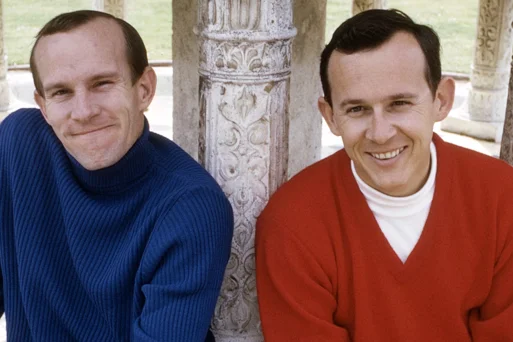
When The Smothers Brothers Comedy Hour premiered in 1967, it looked like just another variety show, but it quickly became one of the most politically charged programs of the decade. Tom and Dick Smothers used their platform to poke fun at politics, question the Vietnam War, and push boundaries with musical guests like The Who and Joan Baez. The boldness didn’t sit well with CBS executives, who often clashed with the brothers over censorship. Their frequent jokes about government policies made the network nervous, especially in a time when the country was deeply divided.
The controversies piled up, with segments being cut and sponsors complaining, but the brothers refused to back down. Eventually, CBS canceled the show in 1969 despite its popularity, fueling its reputation as a symbol of free speech on television. Even now, when people look back, it’s remembered as both a groundbreaking and risky experiment. The tension between comedy, politics, and censorship hasn’t gone away, which keeps the show relevant in discussions about media freedom.
2. Star Trek
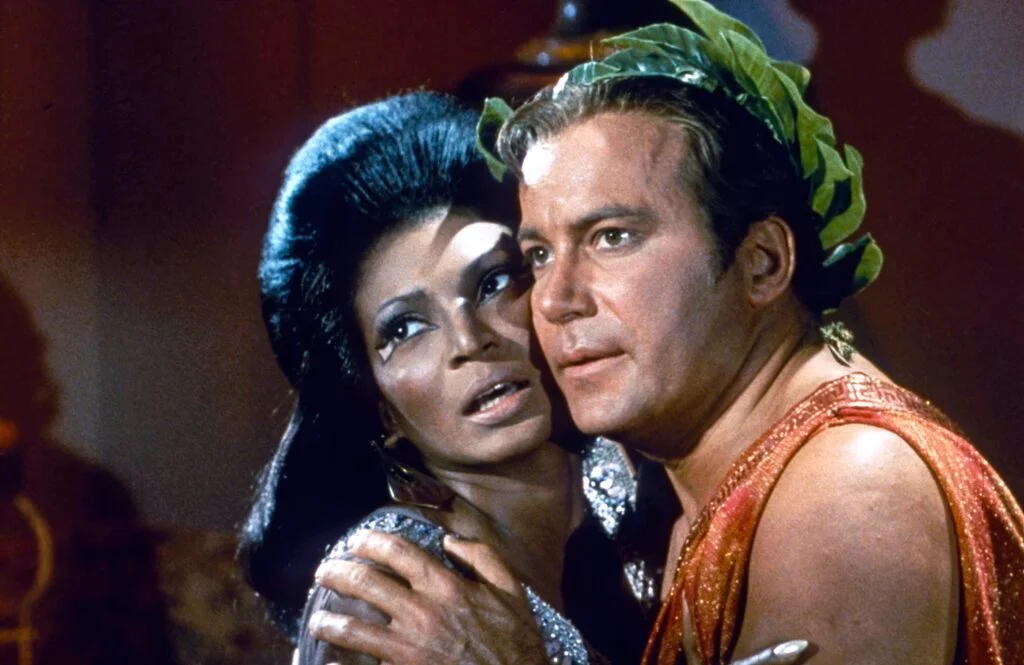
Today, Star Trek is beloved as a sci-fi classic, but when it debuted in 1966, it made waves for reasons that went beyond spaceships and aliens. The show featured a racially diverse cast during a time when TV was still dominated by white actors. Having characters like Uhura, a Black woman on the bridge, and Sulu, an Asian helmsman, was groundbreaking. But what really stirred the pot was a 1968 episode that featured television’s first interracial kiss between Captain Kirk and Uhura.
That single scene sparked heated debate, with some stations refusing to air the episode. At the height of the Civil Rights movement, it was a bold move that drew both praise and backlash. While many now see Star Trek as visionary, those moments remind us of how controversial equality could be on-screen in the ’60s. Even today, the kiss is remembered as a milestone in TV history, but also as a reminder of how much pushback progress can face.
3. Peyton Place
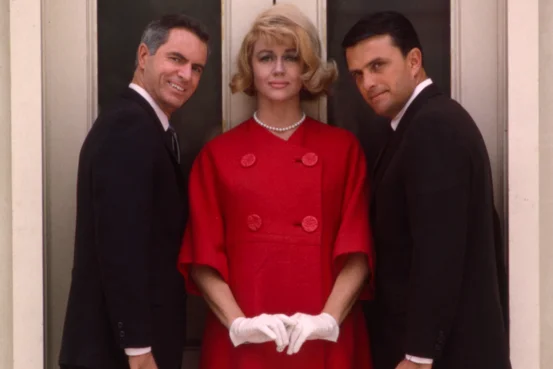
When Peyton Place premiered in 1964, it was marketed as a prime-time soap opera, but what it delivered shocked audiences. Adapted from Grace Metalious’s scandalous novel, it explored themes like extramarital affairs, hidden pregnancies, and small-town hypocrisy. This was a huge shift from the family-friendly shows of the era, and many critics thought it was far too risqué for television. Parents worried about their teenagers watching it, and church groups loudly condemned the program.
Despite the uproar, viewers couldn’t look away, making it a ratings success and paving the way for future soap operas. Its frank portrayal of taboo subjects kept it controversial, and reruns are still seen as surprisingly bold for their time. Looking back, Peyton Place was one of the first shows to prove that audiences were ready for more adult storylines in their living rooms. It walked a fine line between scandalous and groundbreaking, and that balance still sparks debate.
4. Rowan & Martin’s Laugh-In
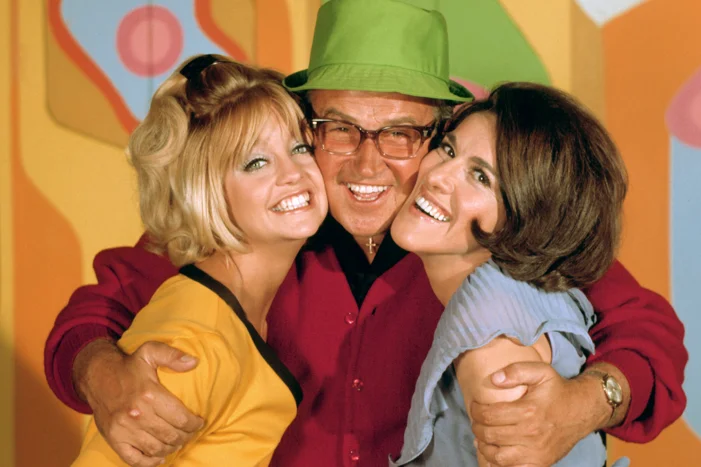
On the surface, Rowan & Martin’s Laugh-In was just a zany sketch comedy show filled with quick jokes, silly gags, and catchphrases. But underneath the goofy exterior, the series (which started in 1968) was laced with political commentary that wasn’t always subtle. The show often poked fun at the government, the Vietnam War, and the counterculture, which made it a lightning rod for criticism. Its rapid-fire style was unlike anything else on TV, and some people found it overwhelming or even subversive.
While many loved its irreverence, traditionalists often wrote angry letters to NBC complaining about its content. Some sketches dealt with subjects like drugs and sexuality, which wasn’t common for prime time back then. That mix of silliness and social commentary kept it at the center of cultural debates. Even now, when rewatched, it’s clear how edgy the show was, sneaking in political truths under a mask of comedy.
5. The Beverly Hillbillies
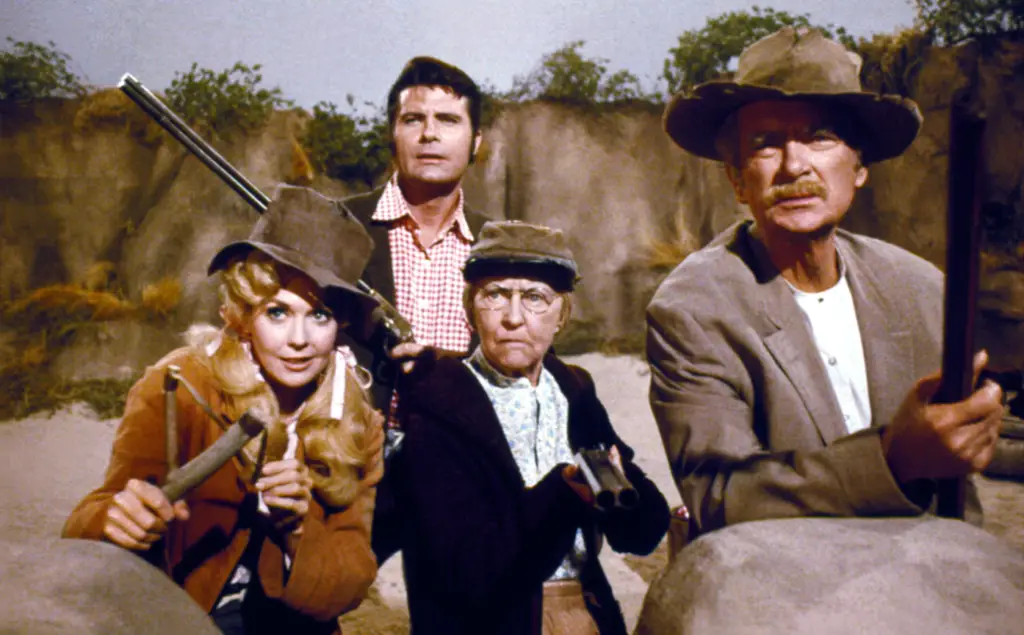
It may sound surprising, but The Beverly Hillbillies was one of the most criticized shows of its time. Though it was a massive ratings hit after premiering in 1962, critics hated it. They called it lowbrow, silly, and even damaging to the image of rural Americans. Some claimed it mocked poor people by turning their country lifestyle into a joke for urban audiences.
Despite that backlash, audiences adored the Clampetts and kept tuning in, making it a cultural phenomenon. The show’s success highlighted the divide between critics and everyday viewers. That tension—was it a harmless comedy or a cruel stereotype?—still colors how people talk about it today. It’s remembered both as one of the most-watched shows of the decade and one of the most controversial for what it represented.
6. The Flying Nun
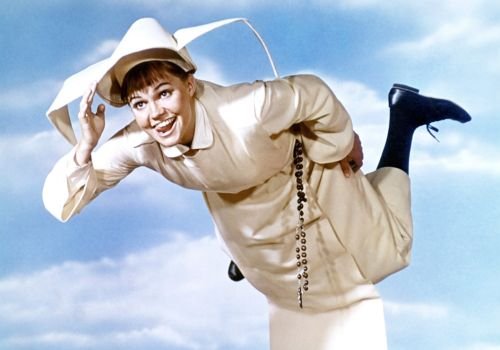
When The Flying Nun debuted in 1967, starring a young Sally Field as Sister Bertrille, it seemed like lighthearted fun. But the concept of a nun literally flying because of her habit’s wingspan quickly drew criticism from Catholic groups. Many thought it mocked religion or made faith seem silly, while others worried about trivializing nuns’ devotion. Field herself later admitted she was embarrassed by the show, feeling it wasn’t respectful.
Yet despite the controversy, it ran for three seasons and remains a quirky part of TV history. Today, some see it as a charming oddity, while others still cringe at how religion was portrayed. That blend of innocence and perceived irreverence makes it one of the strangest—and most debated—shows of the ’60s. It’s the kind of series that sparks laughter for some and discomfort for others.
7. The Mod Squad
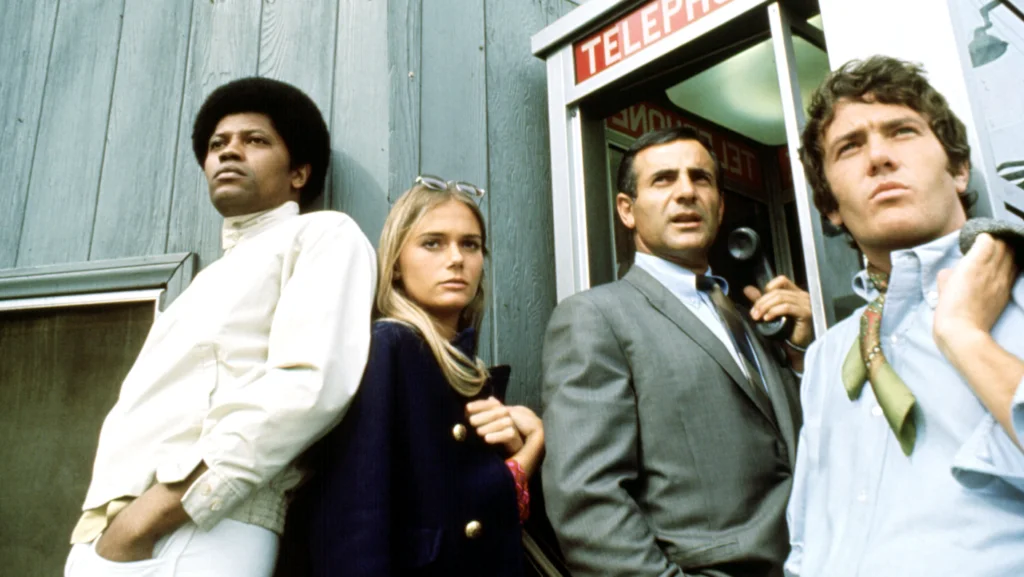
The Mod Squad broke barriers when it hit ABC in 1968. The show featured a trio of young undercover cops—one white, one Black, and one female—working together to take down crime. At the height of racial tensions and the counterculture movement, this casting was radical. It openly acknowledged issues of race, poverty, and youth rebellion at a time when many shows avoided them.
While younger audiences embraced its cool, rebellious tone, some critics accused it of glamorizing counterculture instead of policing it. Others thought its depiction of race relations was too idealistic for the real world. Still, its attempt to put social issues in prime time was ahead of its time. That daring mix of rebellion and law enforcement remains a point of debate, making it one of the era’s most talked-about shows.
8. Bewitched
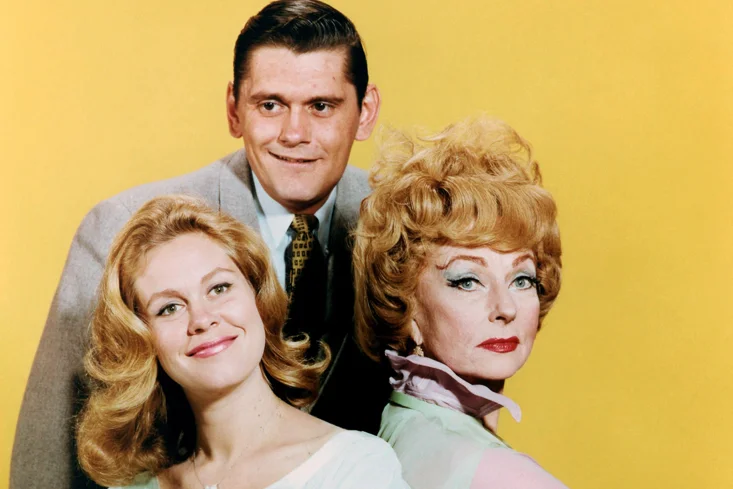
On the surface, Bewitched looked like harmless family entertainment when it premiered in 1964. But beneath the magical comedy, it stirred debate for its themes of gender roles and witchcraft. Some saw Samantha’s powers as a symbol of female empowerment—she could do anything with a twitch of her nose—but critics noted how she often suppressed her abilities to please her mortal husband, Darrin. Religious groups also criticized the show for “glamorizing witchcraft,” something they found deeply unsettling.
The show’s blend of domestic comedy and the supernatural kept those debates alive for years. Was it progressive or regressive? Fun or dangerous? Depending on who you ask, Bewitched was either a lighthearted escape or a subtle challenge to traditional values. That ambiguity is why it still sparks discussion decades later.
9. The Defenders
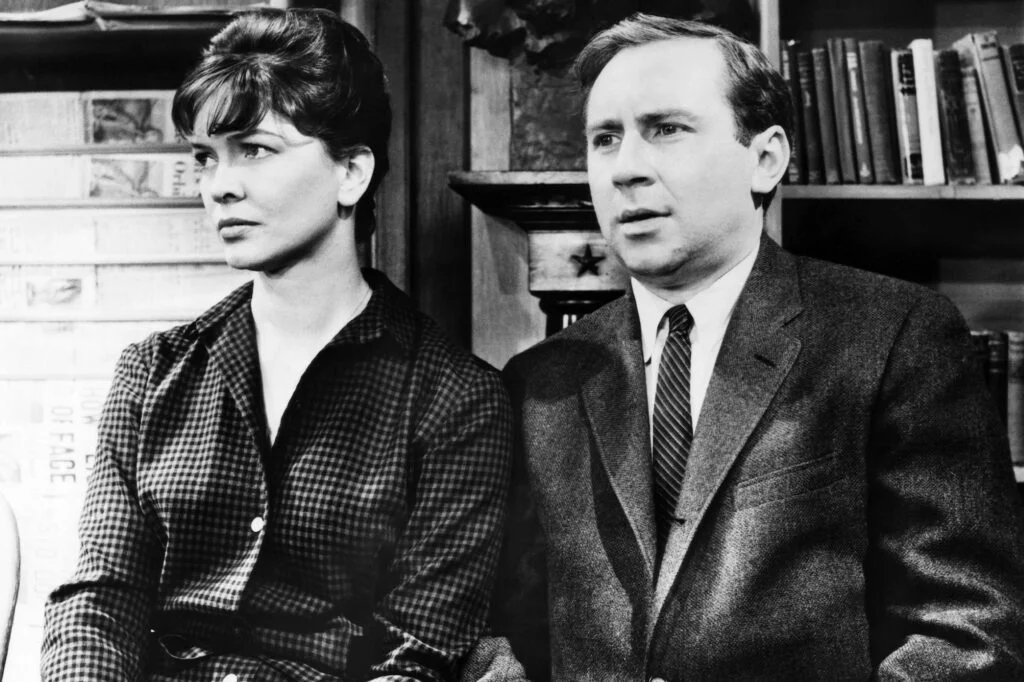
Long before courtroom dramas were commonplace, The Defenders (1961–65) was breaking barriers. This legal series starring E.G. Marshall and Robert Reed didn’t shy away from controversial topics like abortion, civil rights, and the death penalty. It was rare for television to take such an unflinching look at real-world issues, especially in prime time. Each episode left audiences with questions rather than easy answers, which was unusual for TV at the time.
That approach made it beloved by critics but also very controversial. Some viewers thought it went too far, while sponsors sometimes pulled out to avoid being associated with hot-button topics. Still, it won awards and earned a place in history for pushing boundaries. Today, it’s remembered as one of the boldest shows of its era, unafraid to dive into subjects most networks avoided.
10. The Twilight Zone
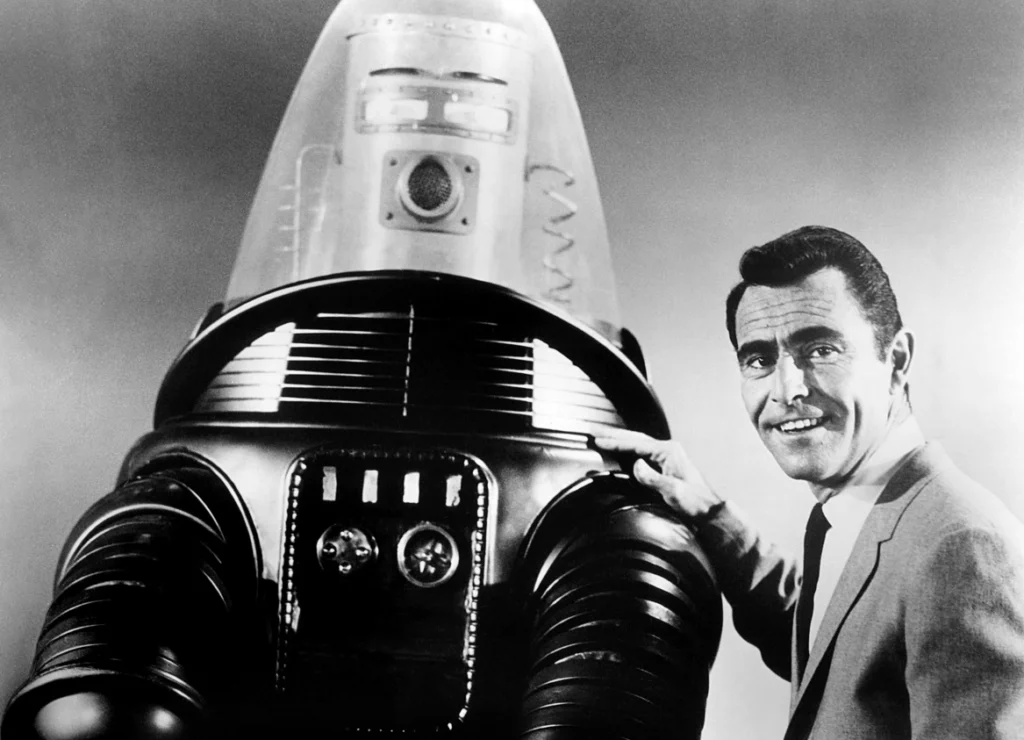
Rod Serling’s The Twilight Zone is now considered iconic, but when it first aired in 1959 and ran through the ’60s, it ruffled feathers. Using sci-fi and fantasy, the show tackled themes of war, racism, and paranoia in ways that sometimes felt uncomfortably close to reality. Serling was known for sneaking in social commentary that might have been censored in a straightforward drama. Episodes about nuclear war or discrimination often left viewers uneasy.
Some critics praised its bravery, while others thought it was too dark and unsettling for television. Certain stations even refused to air episodes they deemed too controversial. Today, its legacy as a socially conscious anthology is secure, but its reputation as a show that pushed boundaries has never faded. It wasn’t just spooky—it was daring.
11. That Was the Week That Was
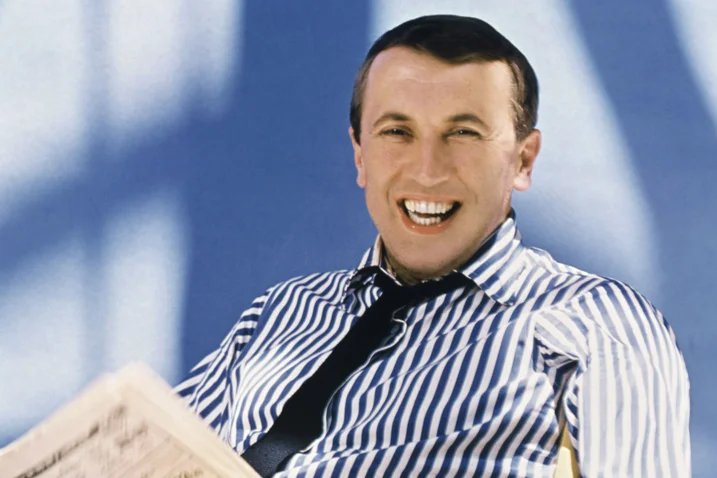
Imported from Britain in 1964, That Was the Week That Was was a satirical news program that openly mocked politics and world events. For American audiences, this kind of blunt, comedic take on current events was shocking. While many younger viewers found it refreshing, politicians and critics accused it of disrespecting authority.
The show’s willingness to lampoon leaders during a time of national tension over Vietnam and civil rights made it a target of controversy. It was canceled after just one season, but its influence lingered in later programs like Saturday Night Live. Looking back, its fearless approach feels ahead of its time, but it also shows how fragile the balance between comedy and politics can be on television.
12. Julia
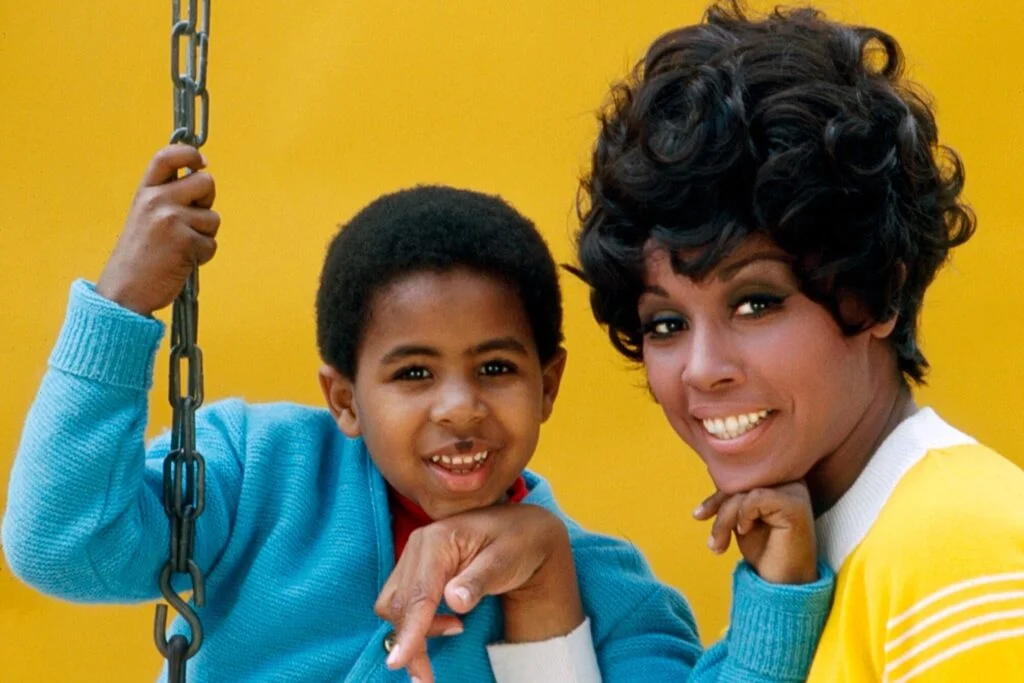
When Julia premiered in 1968, starring Diahann Carroll as a widowed nurse raising her son, it was groundbreaking. Carroll was the first Black woman to star in a non-stereotypical role on a prime-time series. While many praised the show for breaking barriers, others criticized it for being too “safe.” They argued that Julia’s life didn’t reflect the struggles of most Black families during the era, and that the show ignored pressing social issues.
The controversy over whether it was a progressive step or an unrealistic fantasy followed the series throughout its run. Carroll herself acknowledged the debate but defended the importance of representation. Today, it’s remembered both as a milestone and a source of discussion about how television portrays race. That debate keeps Julia relevant even now.
13. The Untouchables
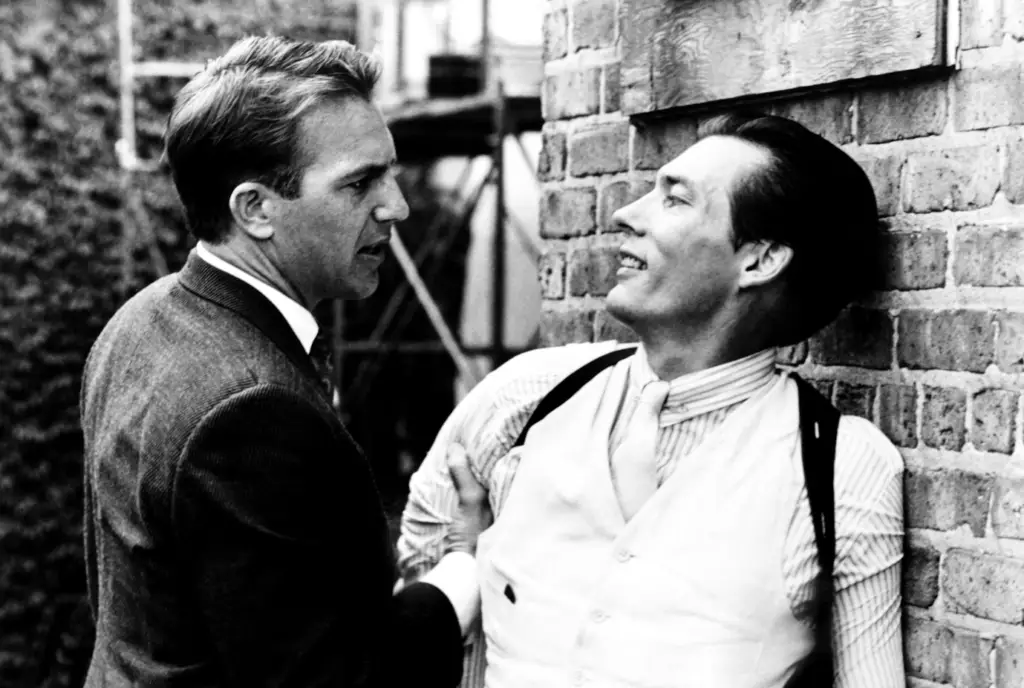
Premiering in 1959 and dominating the early ’60s, The Untouchables was a gritty crime drama about Eliot Ness and his battle against gangsters. While audiences were fascinated by its action-packed stories, critics blasted the show for its excessive violence. Some community groups claimed it glorified crime, while Italian-American organizations protested its portrayal of Italians as mobsters.
The FBI even criticized the show for historical inaccuracies. Yet despite the outrage, it was a ratings hit and inspired countless later crime dramas. That controversy over violence and stereotypes still lingers when people revisit it today. It’s a reminder that TV’s fascination with crime stories has always been a double-edged sword.


